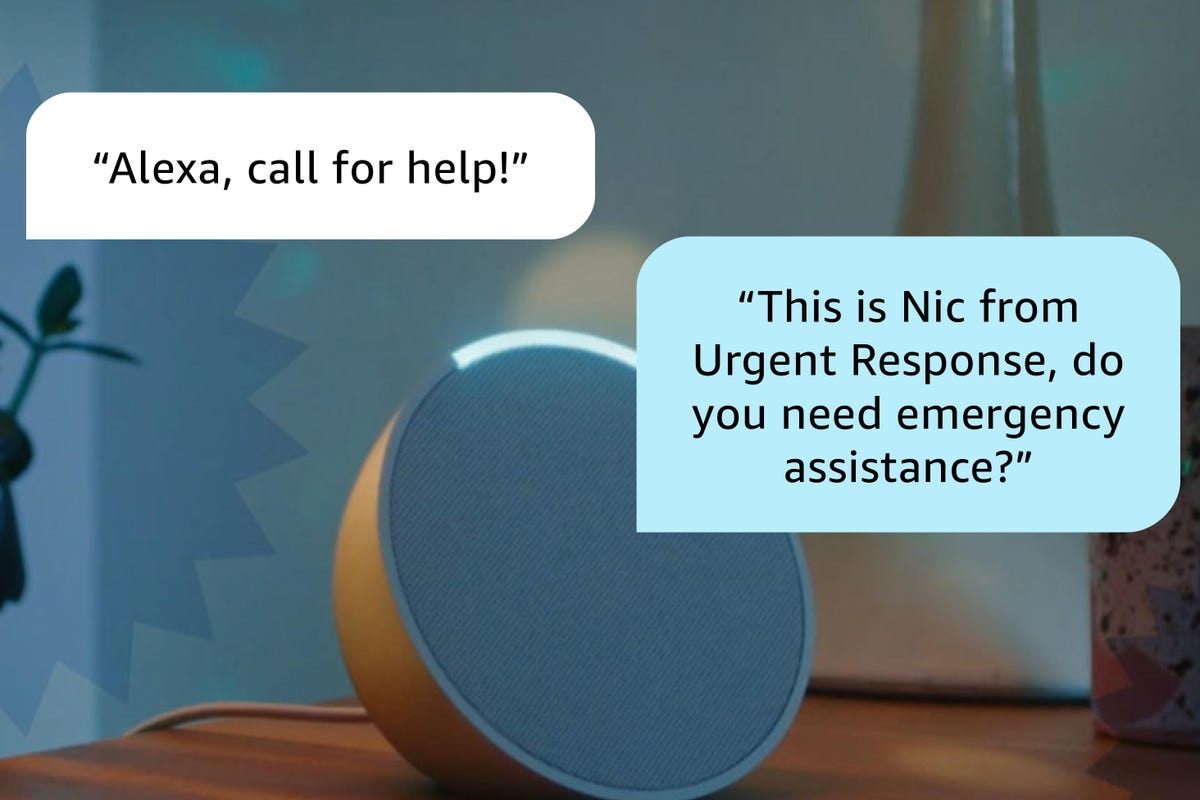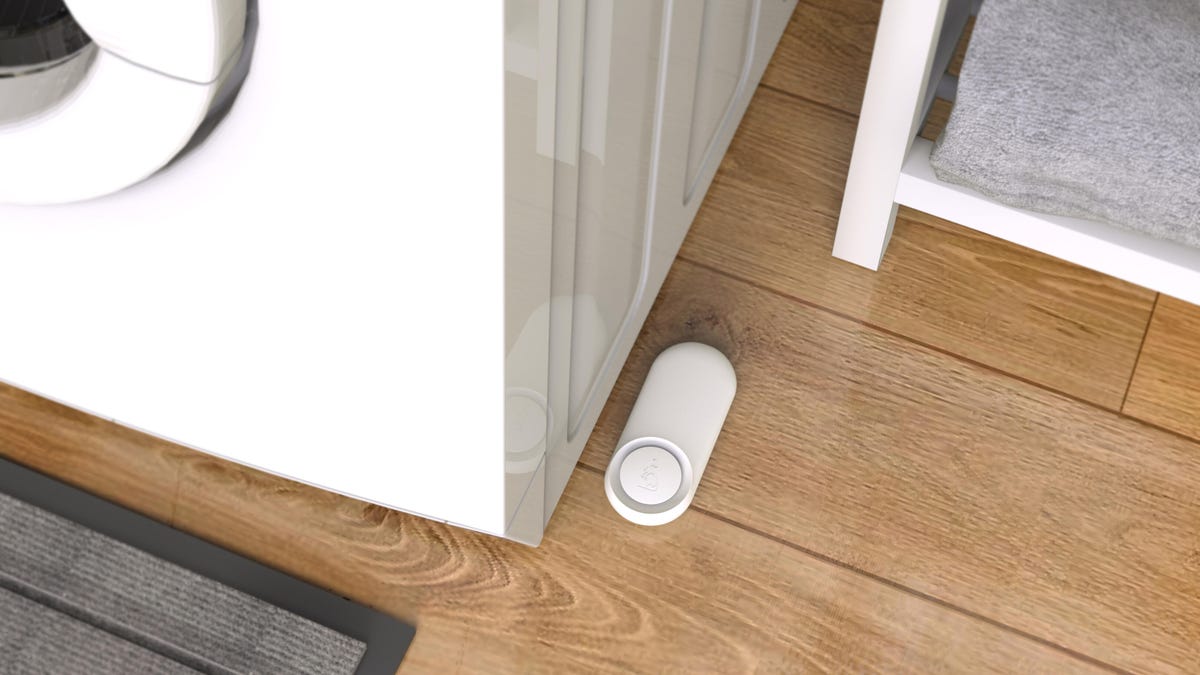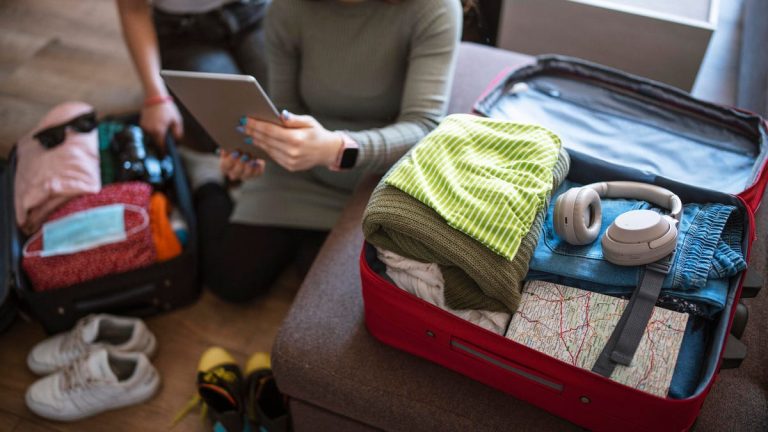Before the final rush of holiday preparations begins, you'll want to take some time to ensure your home is safe while you're away. Good news: today's AI-powered smart home devices make that task much easier. Home security systems, smart lights, and video doorbells can all help you keep an eye on your home when no one is there, without having to rely on unfamiliar neighbors or new pet sitters.
To modernize your home for the holidays, you'll need to make some changes. Review our list of the best security settings and disaster preparedness measures a week or two before you leave. Here are the most useful settings, devices, and services.
Set up routines for smart lights and more

Many smart devices have a vacation or away mode that you can set to simulate a home you live in.
CNET
Today's smart home and home security setups often have not only an Away mode but also a Vacation mode, which is a routine you can set to run while you're away for a few days or longer. (If your Home app doesn't have a Vacation mode, you can tweak Away or Eco mode or set up an entirely new routine.) With devices like Philips Hue lights and platforms like IFTTT, it's easy to create complete routines that cover multiple devices.

Vacation routines can turn indoor and outdoor smart lights on and off to make it look like someone is still at home, and can also control other compatible devices, like managing your smart irrigation system or triggering your smart camera. Set up these routines once and use them over and over again while you're away.
Check your video doorbell's motion detection settings

An essential tool for monitoring your home: a video doorbell.
Ring/CNET
Video doorbells are good at monitoring activity, and their algorithms are steadily improving at detecting people and other objects. Companies like Eufy are working on motion detection that can identify suspicious behavior, like avoiding main aisles, and expose security weaknesses.
However, the motion detection that works best in everyday life isn't necessarily the kind of detection that works best while you're on vacation. We recommend that you go into your doorbell or home camera app and check the motion detection settings. Here are some steps to consider:
Increase the sensitivity of motion detection Set object detection to humans only to reduce alerts Set detection zones to areas near your home or windows where people might try to approach Turn on a beep or light indicator to show that the camera is on and monitoring Set up push notifications on your smartphone screen instead of just in the app Explore web app options, such as support for Nest online viewing and control, which is great for international travel
Additionally, if you pay for a subscription plan, make sure it supports 24/7 emergency assistance so that you can contact the police or fire department immediately after an alarm. If you're going to be away for a month or two, it might be worth upgrading to that type of plan.
Keep windows open or automate them
To make your home look lived-in, it's a good idea to leave your curtains open when you're on holiday (this lets in sunlight and prevents moldy smells). Or, if you have smart curtains or shades (which are also available as a retrofit for existing curtains), you can program them. Create a schedule to open them during the day and close them at night for the best effect. These smart blinds don't have to be expensive; even IKEA has affordable versions.
Manage remote entry with smart locks

Aqara's smart lock deadbolt replacement looks and feels great.
CNET/Tyler Lacoma
Smart locks do more than just let you know if you forget to lock your door: they can lock automatically under certain conditions and support a variety of scheduling options.
The most useful smart locks, like the Aqara U100 or Schlage Smart Lever, let you create passes or temporary codes to give to visitors, allowing you to arrange checks for pet sitters, people who water your plants, friendly neighbors, or anyone else you only want inside at certain times. Smart locks pair particularly well with video doorbells, though to use them remotely, make sure you're in an area with a reliable Wi-Fi connection.
Adjust heating and cooling

Ecobee offers a vacation mode specifically for its smart thermostats.
Ecobee/CNET
Smart thermostats like Nest, Ecobee, and others also have Eco and Away modes that allow you to set separate vacation schedules. Ecobee's thermostat settings also have a vacation mode specifically for this purpose.
The optimal temperature range varies by season, but should be lower than what you set it to while you're at home. In summer, set your thermostat 5 to 10 degrees higher during the day, but with a hard cap of around 80 to 85 degrees to protect indoor plants and such. In winter, do the opposite and set a hard cap of around 50 degrees during the day.
If you live in a hot climate and have pets, your temperature calculations change: You'll need to limit your cooling temperature range to the mid-to-upper 70s Fahrenheit and your heating temperature range to around 60 Fahrenheit to keep your home more comfortable.
Set up a “listening” service like Alexa Emergency Assist

Alexa Emergency Assistant is an affordable listening and contact service.
Amazon
The listening feature uses a simple algorithm to identify dangerous sounds such as breaking glass, a smoke detector alarm, or even a loud barking dog. Home security systems such as Abode and Ring offer a listening option, but you don't necessarily need a home security device to enable this feature.
For example, Amazon's Alexa smart speakers and displays have the Alexa Emergency Assist service, which is the successor to Alexa Guard. For about $6 a month, you get sound detection, as well as access to 24/7 emergency response services and family emergency contacts. It's a great idea to have it enabled for a few months if you're planning on taking lots of vacations during the season. And all Alexa speakers support two-way audio, so you can talk to them live at any time.
Monitored by an armed security system
If your home doesn't have a whole-house security system that can monitor multiple access points, like windows and doors, now's a great time to consider one. Today's home security systems don't even require professional installation or a monthly subscription to protect your home, and many systems even work with third-party smart devices.
Check out our guides to the best DIY home security systems , the best cheap security systems , and the best overall systems for your home to learn more about your options.
Install leak detectors in vulnerable areas of your home

Kangaroo is including a climate sensor (aka a water leak detector) in its expanded eight-piece home monitoring kit.
Kangaroo
Water leak detectors are clever little devices with an open circuit that you place on the floor. When water completes its circuit, various alarm bells and app notifications will go off to let you know there's a leak. That's why they're useful when you'll be away from home for an extended period of time. Place one near the toilet, under the kitchen sink, next to your water heater, or under any pipes that are at risk of freezing over the winter holidays.
Water leak detectors are available as add-ons to most home security systems, but you can also find standalone versions, like Eufy's $35 model (requires HomeBase) and the Alexa-enabled Kidde Leak Detector (starting at $45). These models work with an app, which is why we recommend them, as they're important when you leave your home completely.
Notify the home monitoring center that you are away
If you do spend money on professional home monitoring, check their website to find a contact email address or phone number to let them know you're on holiday – many home monitoring centres will coordinate an official response once they know everyone will be away from home.
Call Mail Service (Optional)
Calling the post office has always been something you had to do when you went on vacation. If your vacation lasts for more than a week, we highly recommend that you send a message to your local post office and ask them to hold your mail for you. This is very easy and you can complete the steps online in just a few minutes.
But with mail not coming in as much these days as it used to, it's harder than ever for a stranger to notice a pile of mail for you. If you're only going to be away for a few business days, you can probably skip this step.
Be careful what you post online

Vacations are great, but be careful not to post too much on social media.
mihailomilovanovic via Getty
While it's tempting to post your vacation plans on social media, this can also be an invitation for thieves and trespassers. Unfortunately, it's difficult to know and trust everyone on your friends list, or all of the friends of friends who may see your status updates.
To be safe, don't post any information or photos about your trip until after it's over, then you can go wild and share your perfect shots on Instagram, TikTok, and Facebook.
Finally, now is a great time to read our guide on how to stop burglars from breaking into your home in the first place, information on whether burglars are actually using Wi-Fi jammers in your smart home, and a comprehensive security cheat sheet for setting up the different parts of your home security.

